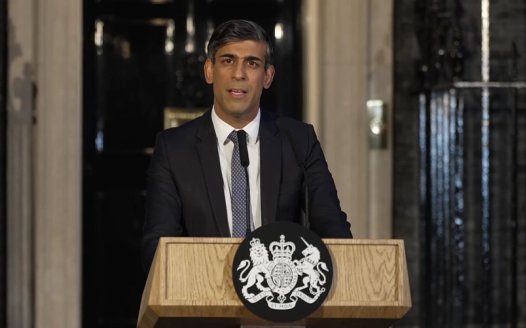For richer or poorer – where is the Church of England?
Posted: Tue, 23rd Feb 2016 by Ed Moore
Is the Church really as poor as it claims? Ed Moore, treasurer of the National Secular Society, considers the extent of the Church of England's considerable wealth.
A recent news item on the BBC web site entitled 'Cash concerns for England's Anglican cathedrals' recently caught my attention and contained the following quote from Andrew Nunn, dean of Southwark Cathedral:
"Very few places have historic funds. People imagine we're sitting on large treasure chests from the past. That isn't the case."
Surely this can't be the true situation? With a history stretching over hundreds of years the Church of England must have amassed enough funds to keep a cathedral in good repair? How much money does the church have?
Trying to calculate the wealth of the Church of England is made difficult by its rather fragmented financial structure. Rather than a single organisation it more closely resembles a franchise, with separately owned and run companies joined by shared marketing and logistics agreements.
The Church of England is divided into three main layers. The national church bodies set policy, provide strategic management and deliver centralised services such as pensions, investment management and payroll. Below this is a management layer consisting of the diocesan companies. Each is assigned a region and given control of all church organisations in that area. Currently there are forty-two diocesan companies under two supervisory areas, York and Canterbury, but this number changes over the years through mergers and splits.
Lastly under each diocese comes the Parochial Church Councils (PCCs). Each council is a separate charitable company with control of one or more churches and a remit to organise members at a local level. Currently there are roughly twelve thousand six hundred such councils but this number also changes over time based on mergers and new church plantings.
The Church of England is funded bottom-up. The PCCs persuade their members to voluntarily 'gift' money and also raise funds via trading and investment activities. The Diocese then asks the PCCs to pass money up. This is the 'Parish Share' and the diocese calculates a figure based on what it thinks a PCC can afford, based on the wealth of each parish. The diocese pressures the PCC to pay up and can shutdown any that fails to meet their target. Any money left over is kept by the parish and can be used locally to support church activities.
Finally each diocese passes a share of their income to the national church, again depending on how wealthy the diocese is. The region retains funds over and above the requested amount.
So how wealthy is the church? To work this out we have to add up or estimate the assets of each individual company in this loose hierarchy. Fortunately the Internet is here and amounts can now be found courtesy of the Charity Commission web site.
The national bodies of the Church of England and the assets each one owns can be listed as:
The Corporation of Church House £27,000,000
The Archbishop's Council £49,282,000
The Church Commissioners £6,739,000,000
The Church of England Pensions Board £1,260,000,000
So that is £8,075,282,000 (yes, billion) to start with.
The forty two dioceses have assets ranging in size from just £8,524,000 at the Diocese in Europe through to £401,000,000 at the Diocese of London. Combined they have a total of £4,317,503,000 plus the Isle of Man's figures which remain elusive.
Now we must estimate the assets of the PCCs. The Church of England stated in 2012 there are 12,600 such bodies so we can take a sample, average then multiply. Using at random:
Parish Of Stratford St John With Christ Church £219,281
Parish Of St Michael And All Angels, Sandhurst £428,828
Parish Of Melton Mowbray £1,213,582
Parish Of Abingdon-On-Thames £1,190,867
Parochial Church Council Of St Nicholas, Harpenden £1,132,503
We get an average of £837,012 per PCC and so an approximate total for all PCCs of £10,546,353,720.
Between the national church, the diocese and the average of the PCCs we end with a total wealth for the Church of England of £22,939,138,720.
But do we now have a total? The truth is it's very hard to tell. As each charity is a separate organisation and there is no single list available of just Church of England charities we only come across new ones by luck. As an example take the Trust For London charity, which manages the London Church Fund. This has assets of £292,003,000. Should this be included? What also of the cathedrals, do they have their own funds? Which brings us to back to our original question.
Andrew Nunn claims to be worried for the future of Southwark cathedral, but the Diocese of Southwark has assets of £231,000,000 and an income of £21,447,000 in 2014. Surely he can use these funds? Alas no, despite Southwark Cathedral being the 'mother church' of Southwark it has no call on diocese funds. The cathedral has been placed in a separate charity called the Southwark Cathedral charity, exempt from listing with the Charity Commission.
Does this charity have money? Yes it does; the treasure chest for Southwark Cathedral currently stands at £17,106,939, plus a further £430,913 in separate but linked charitable funds. Andrew Nunn knows this; he is a charity trustee and member of the finance committee.
With assets of more than £22 billion the Church of England would seem richer than many of us would have believed. Of course if you distribute this money across thousands of charities it can be hidden in plain sight. If you move high maintenance properties into their own separate charities you can also request government support pleading poverty. But is the way a moral church should behave?
Ed Moore is the treasurer of the National Secular Society. The views expressed in our blogs are those of the author and may not represent the view of the NSS.
The numbers used here have primarily been taken from charity Annual Returns for 2014. If you would like a copy of the calculations spreadsheet please contact us.
While you're here
Our news and opinion content is an important part of our campaigns work. Many articles involve a lot of research by our campaigns team. If you value this output, please consider supporting us today.







